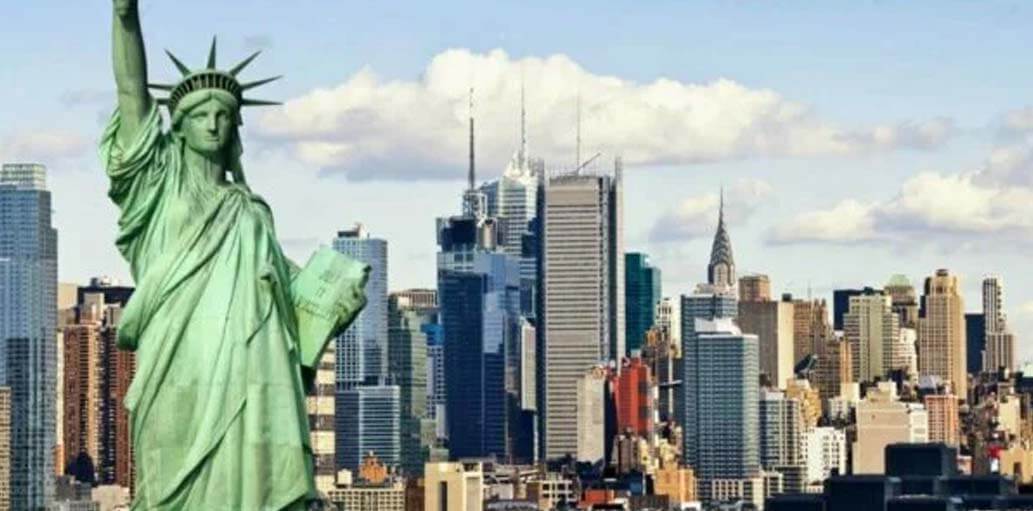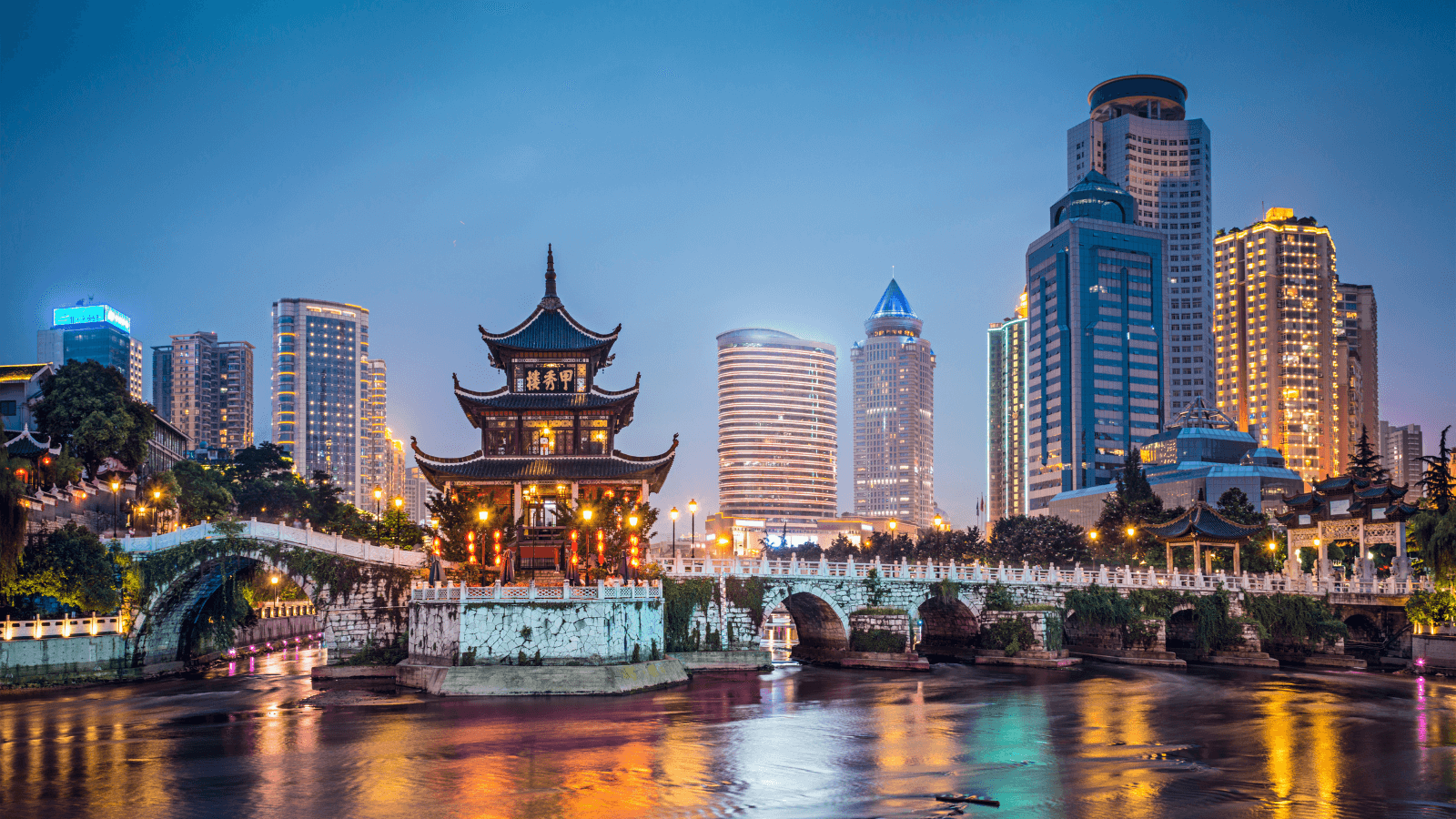Update regarding the novel Coronavirus
Since the World Health Organization (WHO) declared the novel Coronavirus (On February 11, 2020 the World Health Organization announced an official name for the disease that is causing the current outbreak of coronavirus disease, COVID-19) a public health emergency, Gerson Relocation has been carefully monitoring the situation regarding the outbreak of Coronavirus in relation to assignments to and from the region.
This post is updated as new information becomes available.
How is the novel Coronavirus impacting employee relocations to an from China?
20 February 2020
The CDC and NHS have both published information on the symptoms to look out for; CDC guidelines and NHS guidelines.
17 February 2020
Updates from our service partners across Asia show that the situation is still changing. We are seeing that Chinese supply chains are resuming operations gradually based on approval from the Chinese government.
For air and sea freight, the feedback we are receiving is that “airlines and ocean carriers are continuing to review how to operate in this rapidly changing environment with unknown impact on flight schedules, sailings and capacities to and from China. The local governments have imposed stricter and additional requirements for work resumption. Companies need to demonstrate they have safety processes in place, equipped with sufficient hygiene consumable stock and fulfil on-going reporting and audit requirements. Also, there are varying levels of local regulation and restrictions on the movement of people, which have an impact on the domestic supply chain capacities. The cancellation of flights and blank sailings, together with the stricter quarantine requirements enforced at an increasing number of ports and gateways will result in supply chain delays.”
Sea freight: Except for Wuhan, all Chinese ports continue to operate. However, the ports of Shanghai and Tianjin are experiencing congestion. Loading and discharging operations are also expected to slow down due to lack of stevedores.
Air freight: Currently, except for Wuhan airport, which is closed for passenger flights (only operational for air and relief missions), all other airports in China Mainland and Hong Kong (SAR, China) are operational.
14 February 2020
Our regional Asia partners are sending information regarding the precautions they have implemented in countries neighbouring Mainland China. These include precautionary measures for their day-to-day business. These include;
- Measuring the temperature of all staff every day, both crews on the field and all office staff.
- Crews are wearing stickers where we indicate the temperature taken before arriving at the residence.
- Providing hand sanitizers and disinfecting wipes and cleaning each office every day
- Restricting business travel and providing guidance to staff about personal travel to Hong Kong and Mainland China
13 February 2020
We are hearing from several of our local moving and DSP partners in China that staff are returning to some of their offices including Shanghai and Guangzhou in a limited capacity, with more offices expected to open next week in Beijing. Hubei based offices remain closed.
Offices that are opening are running at a lower than usual capacity due to the additional security controls.
Given that many airlines have cancelled their flights to China, booking airfreight shipments to or from China remains difficult.
For clients who want to have their personal possessions packed and returned without them having to be present in the country, this is possible although we cannot commit to availability and is highly dependent on a number of factors including availability of crews, the transportation routes and the ability to legally gain access to enter buildings to complete the work, along with the provision of clear instructions. Regarding the customs export process, we are hearing that there in most cases our China partners can process the export permit if the clients send their original passport and work permit by courier. In Shanghai, the latest information from our local partners is that customs have agreed to allow the export permit to be processed using copies only.
12 February 2020
Household Goods Moves
Shutdowns persist in causing delays to shipments. Shipping costs are expected to change as shipping lines update their pricing based on available resources and demand. Packing and local transport remains delayed. If you have a move to mainland China planned, please speak to us and we will advise you on the best way forward.
Schooling and school searches
According to the Ministry of Education in China, and corroborated by other sources, schools and universities will remain closed until at least the end of February 2020. This will affect international schools. Locally based reports show that some schools in China and other countries affected by campus closures have implemented on-line learning, video conferencing to continue lessons and counsel students. School searches in China are still postponed until further notice.
Home searches and lease management
Home searches in China remain postponed due to restrictions on travel. Those assignees who had previously secured a lease and were due to commence before the limitations on travel are lifted will need to contact us so that we can endeavour to negotiate a postponement of start dates.
Landlords are not accepting early lease terminations and there is a strong possibility of losing security deposits. Please consult with us regarding your specific case.
Update 10 February 2020
The following update was received from our regional partner this morning. While it looks like some companies are reopening, these are in a limited number of cities and under strict control conditions.
Mainland China changes
- “Authorities in major centres like Beijing, Shanghai and Shenzhen have given the green light for businesses to resume operations, but advised them to remain flexible and put into place strict controls to prevent the virus spreading. In Shanghai, the authorities are taking a flexible approach to the resumption of commercial activities.
- Schools and universities, however, would remain closed until further notice
- According to the China government, companies that reopen their doors must ensure their workplaces were properly ventilated and avoid using centralized air conditioning systems because they could help spread the Coronavirus.
- To help with the influx of people back into the city, 16 checkpoints have been set up at the Hongqiao transport hub in central Shanghai, which links the airport to the intercity high-speed rail network and local subway network.”
Hong Kong changes
- “Hong Kong imposes mandatory quarantine for arrivals from mainland China. Anyone who has been to mainland China in the past 14 days and then flies into Hong Kong from another destination will also be quarantined.
- Hong Kong on Saturday 8 February 2020, began enforcing a mandatory two-week quarantine for anyone arriving from mainland China, a dramatic escalation of its bid to stop the Coronavirus from spreading. The new measures, which came into effect overnight, will likely see the vast majority of cases self-quarantine. They will face daily phone calls and spot checks by officials, with up to six months in prison for those found breaching their isolation period.
- Hong Kong residents arriving from the mainland will be allowed to self-quarantine at home. Chinese and international visitors will be able to self-quarantine at hotels or any other accommodation they have arranged.
- Those without pre-arranged accommodation will be taken to temporary facilities prepared by the government.”
Update 7 February 2020
- “We are advising clients to monitor the travel warnings and advice of their governments on a daily basis so that they can advise their employees.
- Within China the virus continues to infect more and more people and as the official end of the Chinese New Year holiday is on Sunday (having been extended from 2 February to 9 February as a protective measure) and millions of people are expected to return from their home towns to the cities where they are employed, there is clearly a risk of further infection.
- People have been advised to stay at home; to only go out to buy groceries; to wear protective masks in order to inhibit the spread of the virus. Some shops and many restaurants have been closed. Schools and kindergartens have been closed until at least 17 February 2020 (including international schools) People have been advised not to attend social gatherings and to monitor their temperatures on a daily basis.
- Many airlines have cancelled their flights in and out of China, and many countries have advised that they will not permit foreign nationals who have travelled through or visited China to enter their countries.
- Chinese and foreigners returning to China after a period abroad are being requested to stay at home in self isolation for 14 days.”
Update 6 February 2020
Impact on relocations in Mainland China
- “West China ports are closed. Our agents presently expect this to last until 17 February 2020.
- Ports in North, South and East China are closed. Our agents presently expect this to last until 10 February 2020.
- Most international schools are currently closed until at least 17 February 2020, but are largely expected to remain so for longer. Many schools have implemented an online, home-schooling process, but campus visits during school search program can currently not be conducted.
- Property viewings are severely restricted in most locations as many compounds are still conducting a resident-only policy. Only people currently residing, or who have been granted special permission by the occupant, are allowed to enter most gated compounds and we are therefore restricted in what properties can presently be shown to incoming assignees.
- Social Activities: Most social expat and sports activities and clubs remain closed. Public gatherings such as dining with large groups are discouraged (and in some areas in fact prohibited). Gyms are closed until further notice, as are playgrounds, some malls and cinemas.
- Supermarkets and grocery stores remain largely open, although opening hours have been modified. We initially had some feedback from assignees on shortages of some grocery items, but this shortage now mainly applies to hygiene masks and any kind of sterilizing sprays and handwash. Food and grocery delivery services continue to operate, although goods can only be delivered to the compound gate for pick up.
- Several fast food and coffee chains remain closed.
- Expat-focused doctors and hospitals remain open, but are asking patients to only visit by appointment and if absolutely necessary.
- Serviced apartments and hotels have established additional safety measures and are requesting for travel itinerary from guests checking in.
- A larger proportion of flights to and from China have been cancelled or reduced in frequency.”
There have also been some changes to immigration processing requirements and generally the requirements are more flexible in the current situation than in the past, due to the virus.
Update 5 February 2020
Last week several countries took action to evacuate nationals living in China and steps to limit the spread of the virus upon re-entry.
This week, the UK Foreign Secretary Dominic Raab gave a statement following the update to FCO Travel Advice advising against ‘all but essential’ travel to China. Note that this does not include Hong Kong or Macao. The US State Department has also advised to “exercise increased caution”. Any U.S. citizen returning to the U.S. who has been in Hubei province in the previous 14 days may be subject to up to 14 days of quarantine and any U.S. citizen returning to the U.S. who has been in the rest of mainland China within the previous 14 days may undergo a health screening and possible self-quarantine.
Impact on relocations to and from China
We have been working with our partners in China and surrounding countries to identify the level of impact to global mobility and the advice that is being given by their national agencies.
Within Mainland China, travel to and from Wuhan is strictly controlled. Feedback from our relocation experts on the ground in other Chinese cities, have reported today that “Most corporate clients are permitting their employees to work at home. Some are not working. Some factories have halted production. A number of corporate clients have instructed their employees and families to return to their home countries until the critical period of the virus passes. So far, most new relocations have been delayed. We haven’t seen any assignments cancelled or employees repatriated”.
Impact on relocations in the APAC region
Countries in the APAC region are also increasing controls. Hong Kong is restricting travel to mainland China. Singapore, Thailand, Japan and other regional countries are also implementing stricter controls. Japan has suspended entry for anyone who has visited China in the last 14 days and anyone who holds a Chinese passport issued in the province of Hubei. Australia has also implemented a temporary travel restriction for all travellers arriving from or who have transited mainland China.
Australia
As of 1 February 2020, people of all nationalities travelling to Australia from any part of mainland China, are subject to enhanced border control measures to reduce the risk of spreading Novel Coronavirus. Australia will deny travel to or entry into Australia to anyone who has left or transited mainland China from 1 February 2020 with limited exceptions.
Hong Kong
- Hong Kong and Macau ports have been open since 3 February 2020.
- Entry ban for Hubei Province residents and visitors.
- Closure of all Immigration Control Points between Mainland China and Hong Kong SAR except Shenzhen Bay and Hong Kong-Zhui Hai Macau Bridge as well as the Hong Kong International Airport.
- Quarantine for 14 days for all entrants from Mainland China starting 8 February 2020, with some exceptions. This includes Hong Kong SAR residents and foreign nationals.
- Limited service at Immigration Department and various other government offices until 9 February 2020.
- Schools and university are reported as being closed.
Japan
- Entry ban for foreign nationals who have visited Hubei Province within 14 days of 1 February 2020. Entry ban on Chinese nationals with passports issued from the Hubei Province.
- Visa extensions are being granted for temporary visitor visa holders from Hubei Province who are unable to return to the Province.
Malaysia
- Entry ban for Mainland China passport holders whose place of issuance or birthplace is Hubei Province.
New Zealand
- Entry and transit ban for people who have transited through or have been in Mainland China on or after 2 February 2020, except for nationals and residents of New Zealand, who are subject to self-isolation for 14 days after arrival.
Singapore
- Entry / transit ban for visitors who travelled to Mainland China within 14 days of arrival in Singapore, except returning Singaporeans, permanent residents and long-term pass holders, who are subject to Leave of Absence (LOA) or quarantine upon entry.
- Entry ban for those with Chinese passports (except Singapore permanent residents and long-term pass holders who are subject to LOA or quarantine, but not those with short- or long-term Singapore visas).
- Rejection of all new work pass applications for Mainland Chinese workers.
- LOA or quarantine for holders of an In-Principal Approval (IPA) letter.
South Korea
- Entry ban for foreign nationals who have visited or resided in Hubei Province within 14 days of entry.
For more information please read:
Re:locate overview of immigration impacts https://www.relocatemagazine.com/health-immigration-coronavirus-bulletin-travel-and-immigration-disruption-0220-peregrine-reeditor
Fragomen update https://www.fragomen.com/about/news/immigration-update-coronavirus
What Gerson Relocation are doing
We are advising clients to monitor the travel warnings and advice of their governments on a daily basis so that they can advise their employees.
We are advising on a case-by-case basis, based on the latest updates from national agencies and our on-the-ground relocation experts.
We are also asking assignees to confirm if they have travelled to Mainland China in the 14 days since 1 February 2020.
We are also working with local service partners across APAC to ensure we have the latest information available.
If you have a move to or from the APAC region, please contact Gerson Relocation contact@gersonreolcation.com
Updated WHO advice for international traffic in relation to novel Coronavirus
The WHO updated its advice to international travellers in order to limit the potential for the virus to spread:
https://www.who.int/emergencies/diseases/novel-coronavirus-2019/advice-for-public
https://www.who.int/ith/2019-nCoV_advice_for_international_traffic/en/




